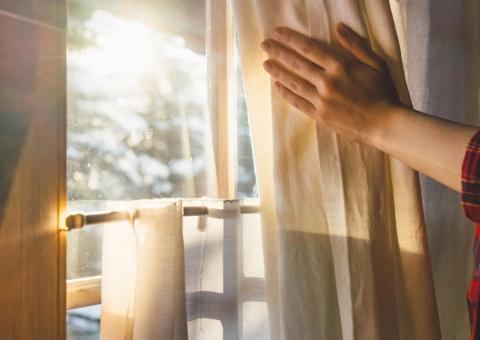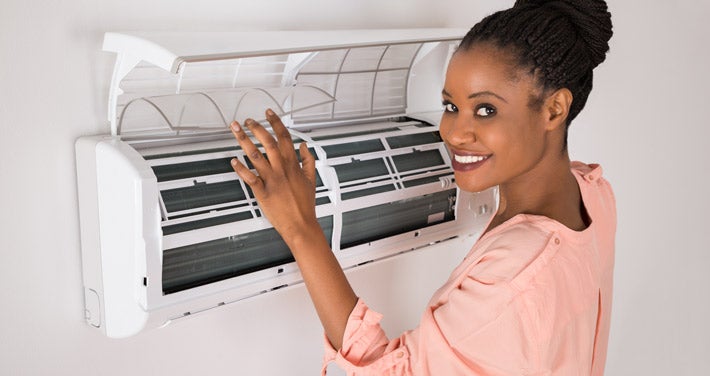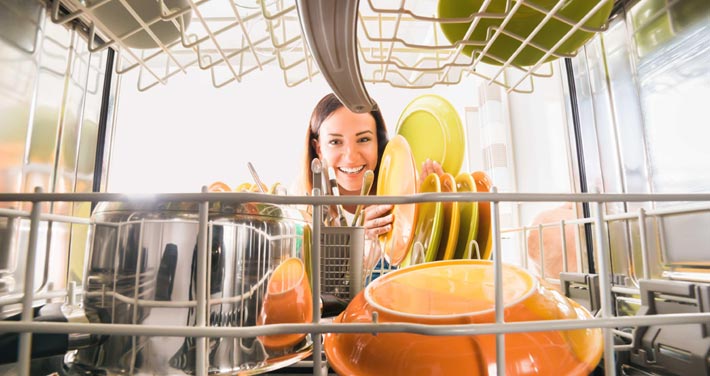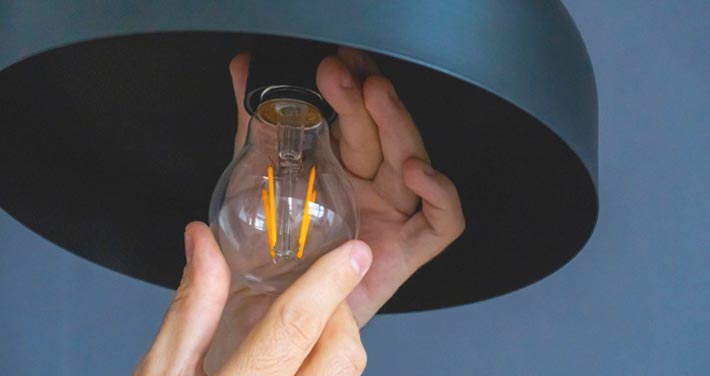There are major investments you can make in your home for long-term savings – installing solar panels, for example, or replacing old windows with newer, energy-efficient ones. But not everyone is in a position to make large-scale improvements. Fortunately, there are just as many small changes you can make to conserve energy – and save money on your energy bill in the process.
Harness the Power of the Sun
Savings: up to 22 percent on your monthly energy bill
One of the easiest ways to conserve energy is by reducing your dependence on artificial light. Although some homes are better suited to taking advantage of natural light, there are simple steps everyone can take to reduce energy consumption and lower their monthly bill. Here are just a few:
- Open the curtains to allow natural light in – this could provide enough light to brighten the entire house depending on the weather and the time of year. (Keep in mind depending on the thermal efficiency of your windows and the outside temperature, leaving the curtains closed may provide you with higher savings in heating/cooling.)
- Trimming trees and shrubs around the perimeter of your home will increase the amount of light that streams through windows.
- Hanging mirrors on interior walls facing the natural light source will amplify its effects – and can make your room appear larger as an added bonus.
Simmer Down
Savings: up to 10 percent on your monthly energy bill
Most of us pay little attention to our hot water – that is until its temperature or availability is called into question. Water heaters come from the factory with pre-set thermostats, but they’re sometimes adjusted during the installation process. Here’s why you should check the hot water temperature yourself, and perhaps consider lowering it:
- Water over 120 degrees can increase the build-up of mineral sediment, which can in turn cause the appliance to corrode prematurely, thus shortening its life span.
- When the water temperature is over 120 degrees, the risk of scalding is greater. In fact, 140-degree water can cause severe scalding in as little as five seconds. This is particularly important to consider in households with small children or the elderly.
- Hot water is subject to what’s known as “standby” heat loss. Because the hot water stored in the tank cools faster, the burner has to re-light repeatedly to keep the water at the programmed temperature – even when it’s not being used. The higher the temperature, the more standby heat loss.
Keep It Clean
Savings: 5 to 15 percent on your monthly energy bill
Believe it or not, basic housekeeping that you already do on a regular basis can also save you money. By keeping appliances free from debris and dust, you will not only improve their efficiency but also increase their lifespan.
- Trim vegetation and remove debris around outdoor air-conditioning units, leaving at least 12 inches of breathing room.
- Resist the urge to hide central heating and air-conditioning vents behind upholstered furniture.
- Filters on furnaces and air-conditioning units need to be cleaned regularly, as accumulated dust, dirt, and pet hair will block the airflow.
- Dusty, grimy light bulbs can reduce their output by as much as 30 percent. The best way to clean them? Turn the fixture off, make sure the light bulb is cool to the touch, and wipe with a soft, lint-free cloth.
Did You Know? A dirty filter is the number-one reason that heating and air-conditioning systems break down.





